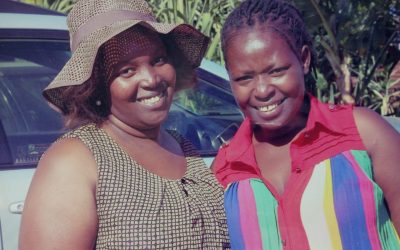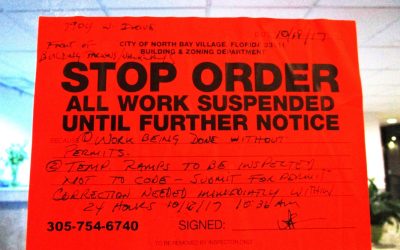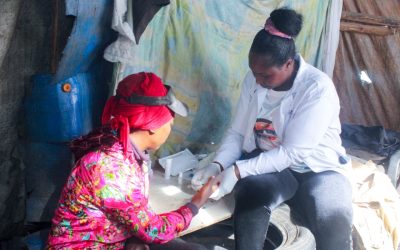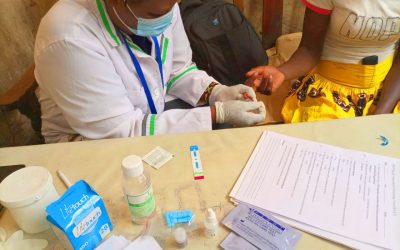50-year-old Jane Wamboi is a single mother and has been employed as a bar hostess since she was eighteen. Jane’s work has seen her work in different bars and entertainment joints in Nairobi, rising to become a bar manager in her last place of work before she was laid off due to the closure of the facility as a result of a government directive to contain the spread of coronavirus. It is through this bar business that she has put her two sons aged 22 and 25 through school.
Prior to Covid, Jane was living in a two-bedroomed house but she has since moved to a single room, an involuntary move that has deprived her of the comfort and privacy that she once enjoyed. Her near-empty room is where she cooks using her kerosene stove and where she sleeps with her two grown boys. She explains that she has sold her TV set, music system, gas cooker, and most of her cutlery at a throw-away price in order to pay her rent and buy foodstuff.
Lockdown orders between March 2020 and July 2020 closed all pubs, cafes, and restaurants in Kenya subjecting Jane and many others like her to uncertainty. During this time, the entire industry more or less came to a complete halt. Some restaurants remained open for delivery and takeaway, but the industry is now a pale shadow of its pre-Covid-19 self.
Then came partial re-opening which saw modest signs of recovery, but the industry remained vulnerable. The announced social distancing measures to address the resurgence in Covid-19 infections seem largely focused on restricting the operation and use of pubs and restaurants.
Hospitality was the worst-hit sector, accounting for a third of the job losses, followed by retail, according to the Office for National Statistics.
Pubs, cafes, and restaurants directly employ 20% of the Kenyan workforce according to statistics from the Kenya National Bureau of Statistics. They also employ a disproportionate number of workers with low qualifications – over 50% of workers have no post-high school qualifications – who will have few other job opportunities. In addition, pubs, cafes, and restaurants are part of the amenities that improve neighborhoods and local employment rates.
Annah Wambui popularly known as Mama Shiko is the owner and proprietor of Progressive bar in the Kasarani estate in Nairobi. She has been running a bar business for close to five decades now, she says she has never witnessed anything of this sort for the period she has been in business. “I opened this bar in 1972 and since then I had never closed down my business until this pandemic struck. I had employed 19 members of staff, from the bar manager to security guards, I had no option but to let them go since I couldn’t afford to have them on salary while I don’t sell anything.”
Mama Shiko says her business had fully complied with measures put in place when the government allowed bars to partially operate until 9 PM, which although was little business it kept the business afloat up until the second directive to shut down completely came towards the end of March 2021. “I had just bought all my licenses to run throughout the year, and now here we are closed again not knowing when we will reopen”, said Mama Shiko. “Some of my stock is about to expire, it is a loss that runs into hundreds of thousands that even if we reopen today, it will take months to recover,” she added.
Bar Hostess and Empowerment Programme BHESP is an organization that supports and protects the rights of bar waitresses and sex workers with a membership of over 9000 girls. Its Executive Director Peninah Mwangi says she fears that many bars will not be able to reopen and many of those who were making a living from the bar business will have to look for alternative sources of income. “Most of these bars and restaurants operated through bank loans that attract very high interests, the owners have not serviced those loans and are now heavily in debts, unless they are bailed out, most of their establishments will be closed completely, said Ms. Mwangi.
“BHESP as an organization has tried as much as it can to at least link those who have been rendered jobless as a result of the closure of bars to organizations and individuals who can at least support them with foodstuffs and little capital to start small ventures like selling vegetables or clothes” added Ms. Mwangi.
“We know the pandemic is not anyone’s wish and we just have to comply with the governments directive while we figure out what other means we can use to survive because at the end of the day food has to be on the table, rent has to paid and children have to go to school, it is a sad state of affair,” concluded Ms. Mwangi.
While some optimism has emerged from the prospect of a functioning vaccine, the next few months are likely to remain very challenging, with unemployment continuing to rise and the government looking more likely to remain silent on measures it can take to cushion the citizens from the biting effects of a dwindling economy.






